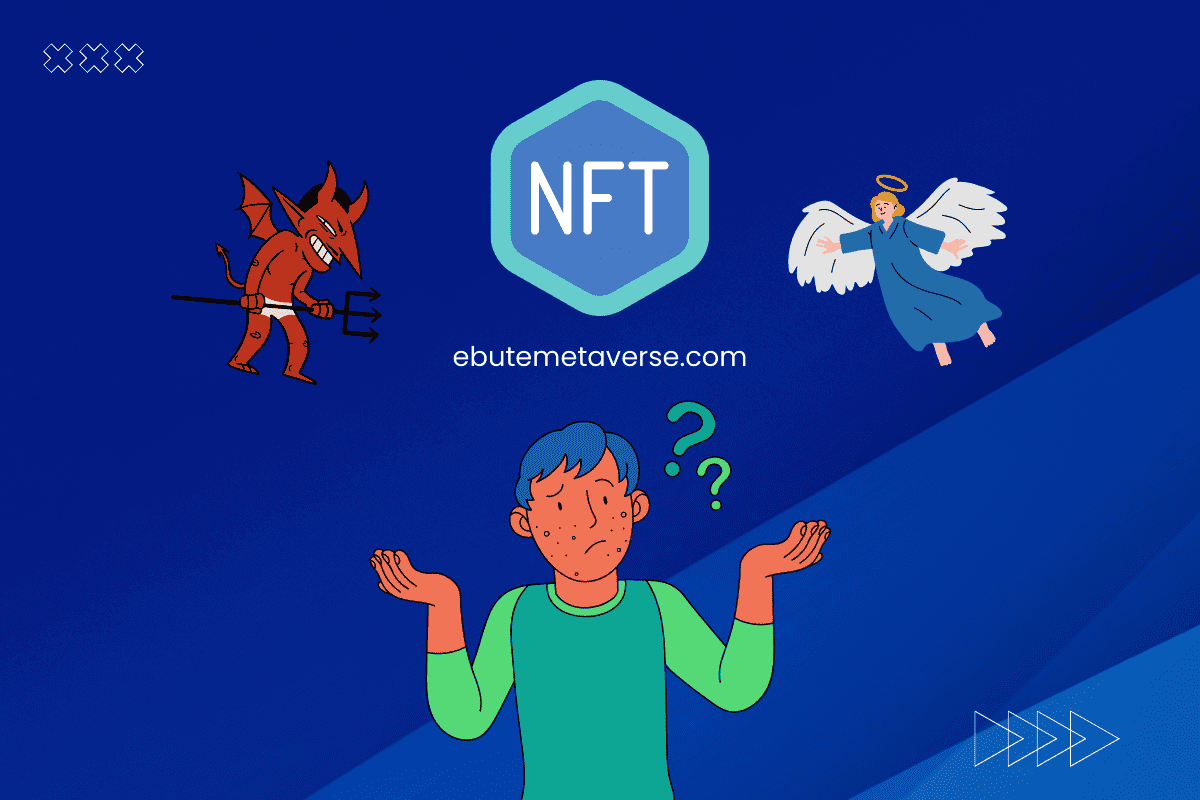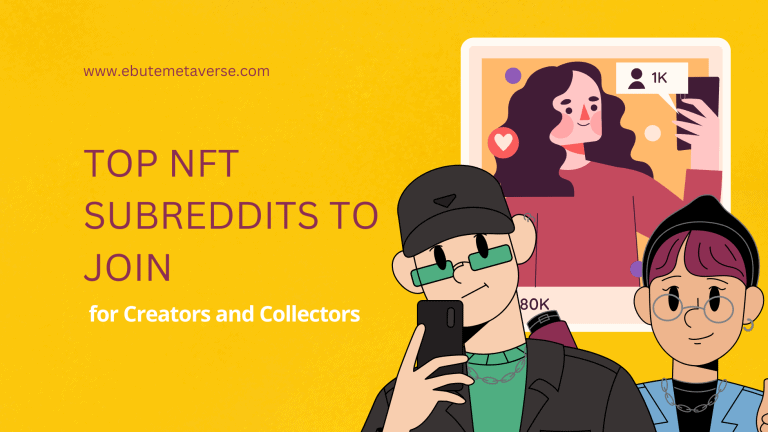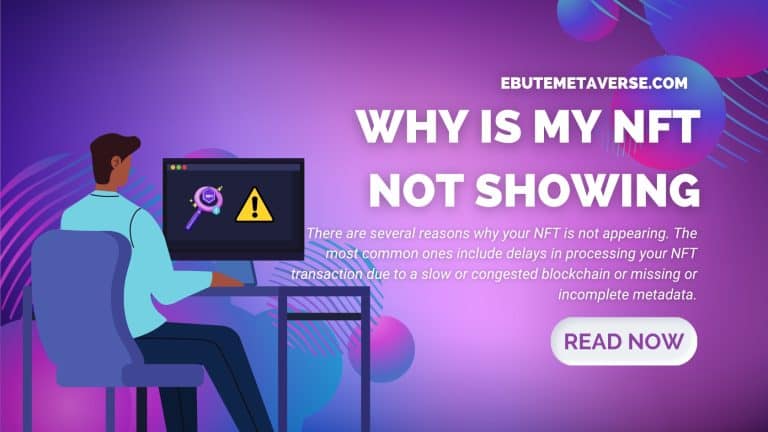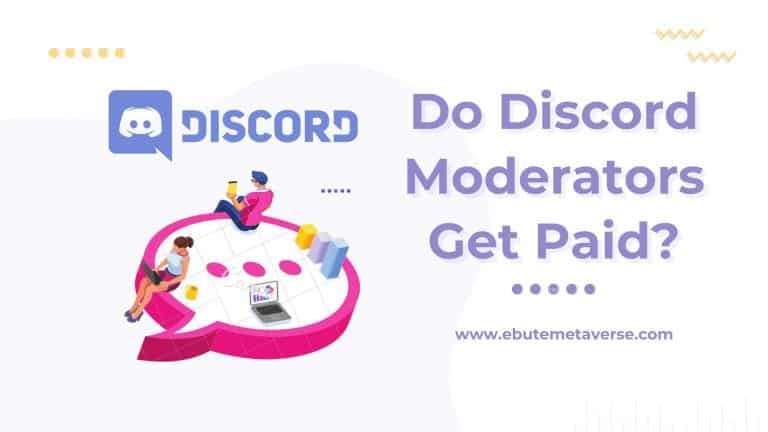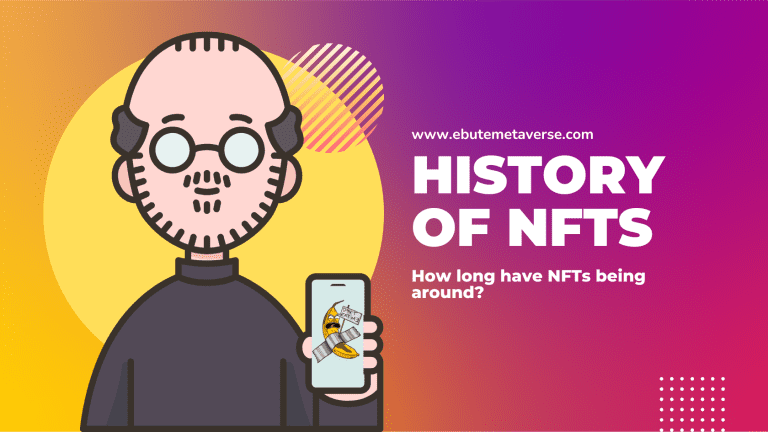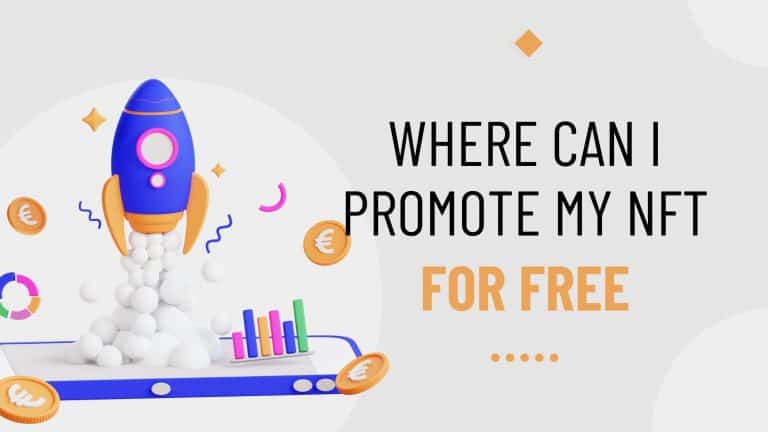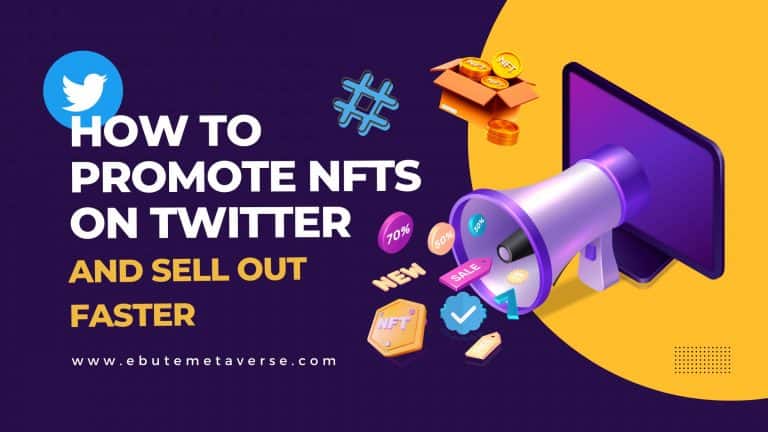10 NFTs Pros and Cons in 2024: The Complete Explanation
The NFT market isn’t as vibrant as it once was when Beeple’s art sold for millions. And this might leave you wondering if getting into NFTs in 2024 is still a good idea.
If you ask us, our answer is yes. But before diving headfirst into the space, it’ll be nice to understand NFTs pros and cons.
This article will explain the major benefits and drawbacks associated with NFTs. It would provide you with the necessary information you need to know before making your first NFT purchase or choosing to become an NFT artist in 2024 and beyond.
What Are the Pros and Cons of NFTs?
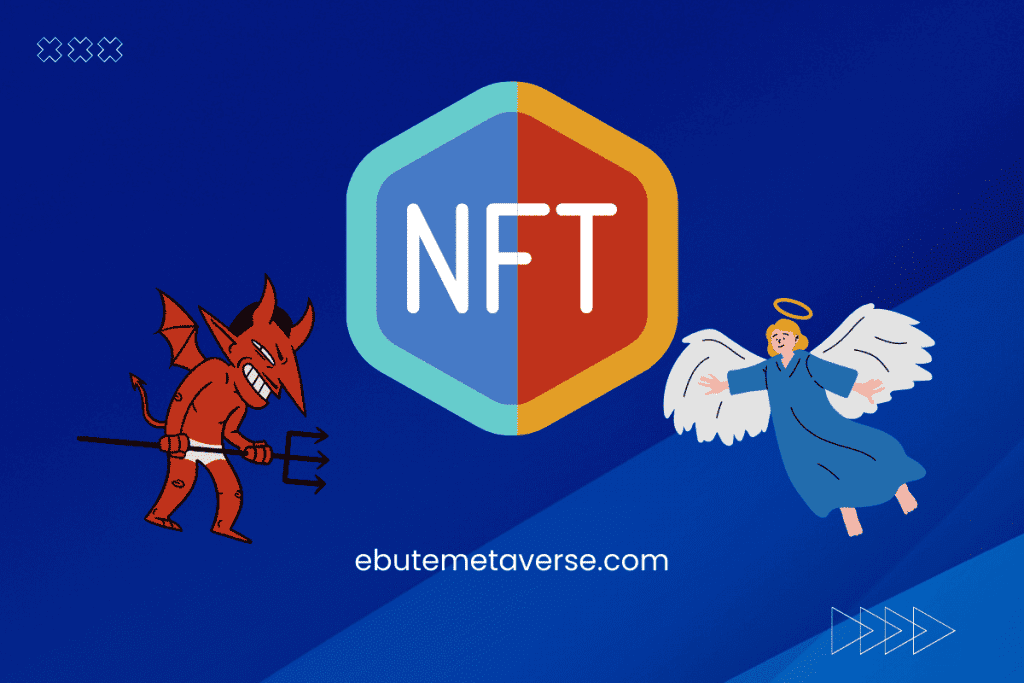
Let’s break down the NFTs pros and cons. This will help you better understand how NFTs work and make informed decisions about whether or not diving into the world of NFTs is right for you.
| Advantages of NFT | Disadvantages of NFT |
| Ownership is secured by blockchain technology | Highly volatile and illiquid |
| Allows fractional buying | Not considered an asset class |
| Improve marketplace efficiency | Does not generate income |
| Provides multiple income streams to creators | There are several cases of scams and fraud. |
| Encourages authenticity | Not eco-friendly |
Pros of NFTs in 2024
So, with our digital goggles firmly in place, let’s first focus on the brighter side of this revolutionary trend. Here are the pros of NFTs in 2024.
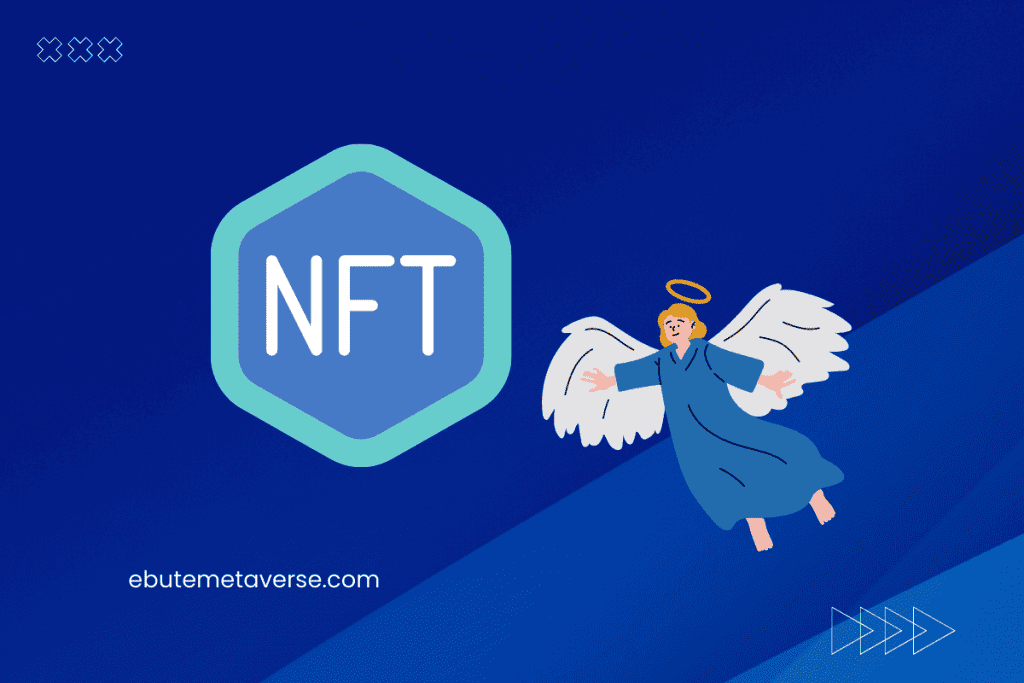
NFT Pro 1: Blockchain Technology Protects Ownership
Most NFTs are minted on a blockchain network, which is reputable for its secure and immutable nature. The metadata and chain-of-ownership data are usually stored on the blockchain, which, in theory, protects the NFT from theft and abuse.
Since data on a blockchain is immutable, the ownership of the NFT cannot be tampered with. Also, the technology facilitates the maintenance of the NFT’s authenticity and rarity.
Also Read: Where Are NFT Images Stored? [How To Check It]
NFT Pro 2: Allows Fractional Buying
When investing in physical assets such as real estate and artwork, it can be difficult to employ the strategy of fractional ownership. This strategy allows investors with limited capital who want a highly diversified portfolio to buy fractions of the assets they want, such as stocks.
A digital asset like NFT, however, can be divided and distributed among numerous owners far more easily than a physical one. So, NFTs can be used to bridge the indivisibility barrier that most physical assets have.
NFT Pro 3: Improve Marketplace Efficiency
Transforming a physical asset into a digital one can help increase security, simplify operations, improve the supply chain, and eliminate middlemen.
For example, let’s take a look at how NFTs are revolutionizing the art world and our perception of art. Artists can now interact directly with their target audience without the need for expensive agents. Also, transactions can be done in a secure, transparent, and less time-consuming way thanks to blockchain.
NFT Pro 4: Provides Multiple Income Streams
There are tons of ways to make money from NFTs, and many more opportunities will emerge with new developments in the industry. Today, some of the most popular ways to make money with NFTs are by creating and selling NFTs, flipping NFTs, and earning royalties.
NFT Pro 5: Encourages Authenticity
It’s easy to confirm the authenticity and worth of an NFT because each NFT is distinct and verifiable on the blockchain. This development is particularly crucial in the realm of art since fake and forged artwork is a serious issue.
NFTs give artists the ability to prove their ownership of their digital works and prevent duplication or misappropriation.
Cons of NFTs in 2024
Having delved into the exciting prospects, it’s now time we cast our gaze on the less glamorous aspects. Let’s explore the cons of NFTs in 2024.
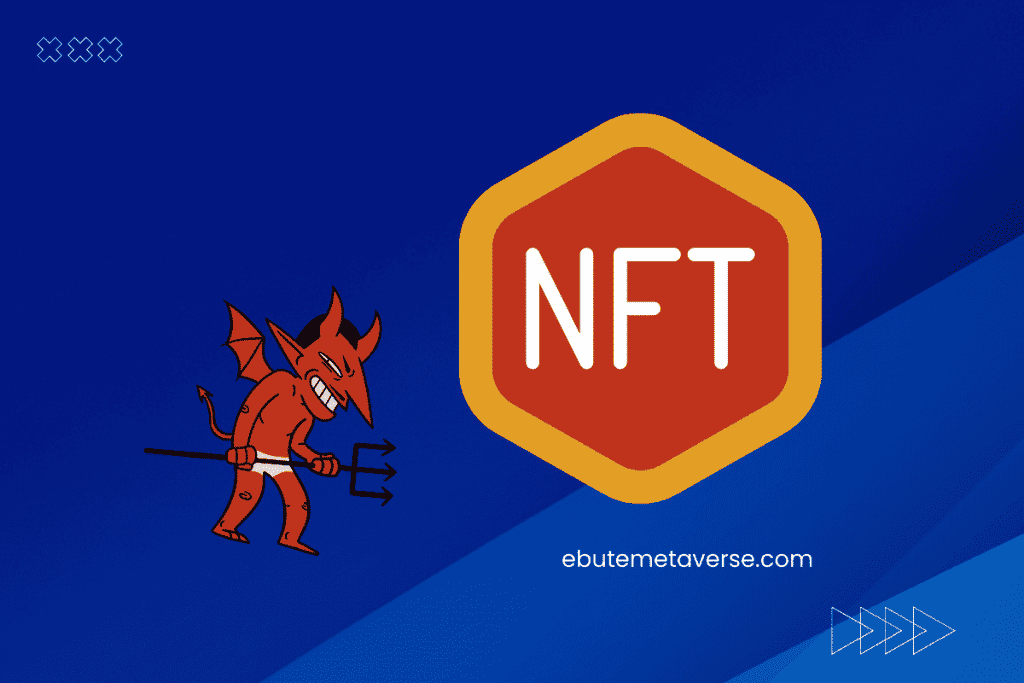
NFT Con 1: Highly Volatile and Illiquid
Due to its still-emerging status, the NFT market is still considered illiquid. Also, because there are still few possible buyers and dealers of NFTs, the market is still unpredictable. All these factors make trading NFTs challenging, especially when things are bad. It also implies that NFT prices could be quite unstable.
NFT Con 2: Not Considered an Asset Class
Frequently, most beginners mistakenly perceive NFTs as an asset class as opposed to a technological method of indicating ownership. This and many more misunderstandings about what NFTs really are can lead to inflated and unstable tokenized asset valuations.
NFT Con 3: Does Not Generate Income
Contrary to what some people believe, NFTs do not provide their owners with any income potential, unlike bonds and stocks. The main return you’ll get when investing in NFT is price appreciation.
However, there have been recent developments that can allow you to generate some income from NFTs. For example, you can stake your NFTs or lease out NFT license rights to earn passive income with NFTs.
NFT Con 4: Several Cases of Scams and Frauds
Even though blockchain is secure, there are still a lot of NFT scams to watch out for. On many occasions, we’ve seen a number of artists claim they were unaware that their work was being sold as NFTs on online marketplaces. Also, there have been cases of rug pulls, like the famous Banksy NFT scam.
All these and many more issues ridicule the main objective of using NFTs to facilitate the sale of art.
NFT Con 5: Not Eco-friendly
Minting NFTs on the Ethereum blockchain, which supports the majority of NFTs, requires a substantial amount of computational power. That’s because it employs an energy-intensive operational protocol known as proof of work. This high energy consumption has led to a rising discussion over the long-term damage the process is doing to the environment.
However, many creators are now looking towards eco-friendly ETH blockchain alternatives like Solana.
How Do People Earn Money through NFTs?
People can use a variety of methods to make money with NFTs, including:
- creating and selling their own digital artworks,
- receiving royalties from subsequent sales,
- working with others on collaborations or commissions,
- hosting NFT events,
- launching NFT drops or auctions,
- providing NFT-related services like consulting or curation,
- using NFT-backed lending or fractional ownership platforms, and more.
How Do Beginners Invest in NFTs?
The first and most profitable investment beginners in NFT should make is to learn the basics of NFT, including the market and trends.
Research towards finding the best NFT marketplaces and evaluating an NFT’s value would go a long way in preparing you for success. As a beginner, you can also join NFT communities and newsletters to get advice from seasoned collectors and stay updated on industry news.
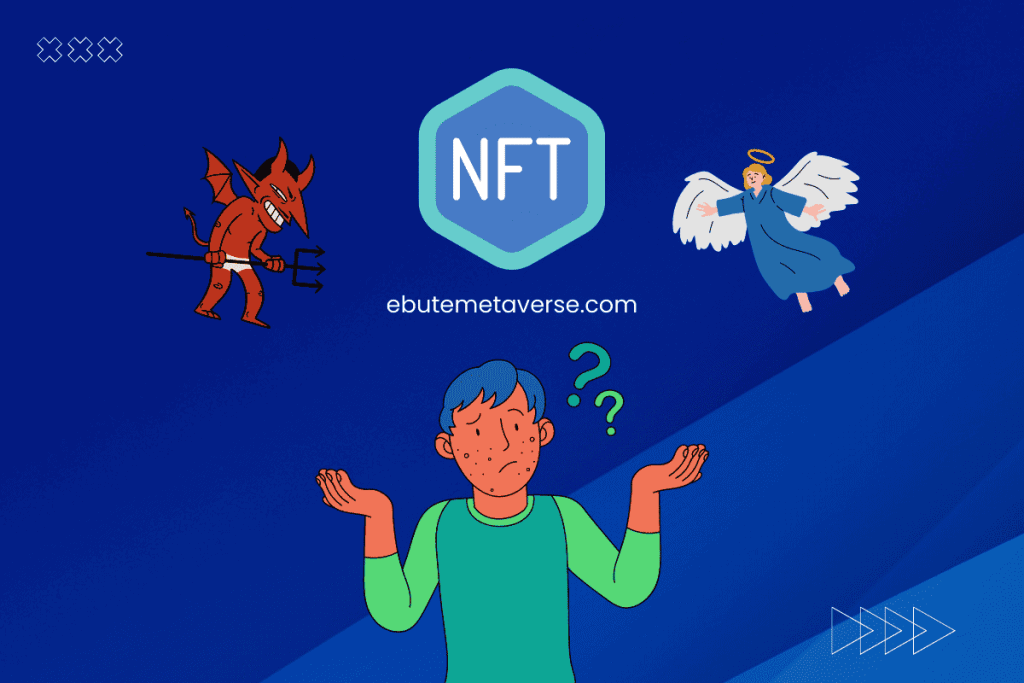
Finally, it’s beneficial for beginners to start with smaller buys and then progressively build up their portfolio as they gain expertise and knowledge in the NFT market.
NFTs Pros and Cons Final Thoughts
As much as NFTs boast immense potential, their pros and cons can’t be ignored. Remember, investments in digital assets, including NFTs, come with risks, so you should limit your investment to an amount you’re willing to lose. Reflecting on the NFTs pros and cons is crucial to understand whether this form of investment aligns with your financial and personal goals before you dive in.

